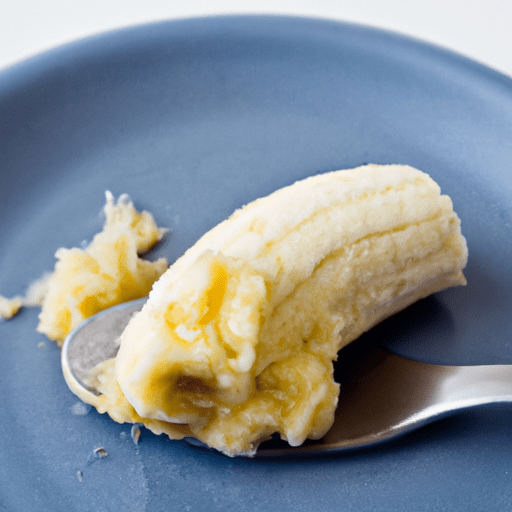Mashed Bananas: The Versatile Delight
Looking for a versatile ingredient that is as delicious as it is nutritious? Look no further than mashed bananas! These soft and velvety fruits are a fantastic addition to various culinary creations. Whether you enjoy them plain or incorporate them into your favorite recipes, mashed bananas are sure to provide a burst of flavor and an abundance of health benefits.
A Taste of Creamy Sweetness
Mashed bananas possess a naturally sweet and creamy taste that can bring joy to your taste buds. The ripe bananas, when mashed to perfection, turn into a smooth and velvety puree with a hint of tropical goodness. The flavor is mild and subtly tangy, making it an excellent base ingredient for a wide range of dishes.
Culinary Uses for Mashed Bananas
Mashed bananas are incredibly versatile and find their way into countless recipes in cuisines around the world. Here are a few popular uses for this delightful ingredient:
1. Baking and Desserts
Bananas are a baker’s best friend. Mashed bananas, with their natural sweetness, act as a fantastic substitute for refined sugar and unhealthy fats in baked goods. They add moisture, texture, and a delightful flavor to recipes like banana bread, muffins, cakes, and cookies. You can also layer mashed bananas into parfaits or use them as a topping for pancakes and waffles, creating a mouthwatering treat.
2. Smoothies and Shakes
Mashed bananas are a staple ingredient in smoothies and shakes. Creamy and naturally sweet, they act as a thickening agent and provide a delightful flavor base, making your drink rich and satisfying. Pair mashed bananas with berries, yogurt, or nut butter for a delicious and nutritious beverage that will keep you energized throughout the day.
3. Ice Cream and Frozen Treats
Who can resist a scoop of homemade banana ice cream? Mashed bananas lend themselves perfectly to frozen delights. Combine them with milk, cream, or yogurt for a creamy and refreshing treat. You can also freeze mashed bananas to make healthy “nice cream” by blending them until smooth and creamy. Feel free to experiment with different flavor combinations by adding nuts, chocolate, or your favorite fruits.
Nutritional Value of Mashed Bananas
Besides their delectable taste, mashed bananas bring a range of essential nutrients to the table:
- Vitamin C: Mashed bananas are a great source of vitamin C, an antioxidant that supports a healthy immune system and collagen production.
- Potassium: These soft fruits are packed with potassium, an essential mineral that helps regulate blood pressure, maintain proper heart function, and support muscle health.
- Dietary Fiber: Mashed bananas are rich in dietary fiber, which aids in digestion, promotes satiety, and keeps your gut healthy.
- Vitamin B6: Bananas contain vitamin B6, which plays a vital role in brain development, nervous system function, and the production of red blood cells.
Fun Facts and History
- Bananas are believed to be one of the oldest cultivated fruits, with evidence of cultivation in Southeast Asia dating back over 7,000 years.
- The scientific name for bananas is “Musa sapientum,” which means “fruit of the wise men.”
- In the early 20th century, mashed bananas were often used as a baby’s first solid food due to their easily digestible and nutrient-rich nature.
- Bananas are one of the most consumed fruits globally, with over 100 billion eaten each year.
Conclusion
Mashed bananas are not only a tantalizing treat for the taste buds but also a versatile and nutritious ingredient with a fascinating history. Whether you’re baking, blending, or freezing, mashed bananas add depth and natural sweetness to a variety of dishes. So, why not grab some ripe bananas, mash them to perfection, and let your culinary creativity shine? Your taste buds will thank you!
Go ahead, indulge in the velvety delight of mashed bananas and unlock a world of culinary possibilities!
Interesting Facts about Mashed Bananas:
Origin: Bananas are believed to have originated in Southeast Asia, specifically in the region encompassing the Malaysian Peninsula, Indonesia, and the Philippines. From there, the cultivation of bananas spread to different parts of the world.
Common Uses: Mashed bananas are a versatile ingredient commonly used in cooking and baking. They are frequently used as a natural sweetener and a replacement for fats in recipes. Mashed bananas are often added to smoothies, cakes, breads, pancakes, and muffins. They can also be used as a baby food or as a base for homemade ice cream.
Nutritional Benefits: Mashed bananas are highly nutritious. They are an excellent source of dietary fiber, vitamin C, vitamin B6, and potassium. Bananas are also known for their high carbohydrate content, providing a quick source of energy.
Unique Properties: When mashed, bananas produce a creamy and smooth texture that adds moisture and tenderness to baked goods. The natural sweetness of bananas can help reduce the amount of added sugars required in recipes. The high pectin content of ripe bananas helps them bind other ingredients together, making them a useful binding agent in certain recipes.
Historical Significance: Bananas have been cultivated and consumed for thousands of years. In ancient times, bananas were grown in many parts of Asia and were highly valued by sailors due to their high nutritional content and long shelf life. During the colonial era, bananas gained popularity in Europe and North America. Today, they are one of the most widely consumed fruits globally, with various cultivars and hybrids developed to suit different preferences and climates.




Use the share button below if you liked it.
It makes me smile, when I see it.